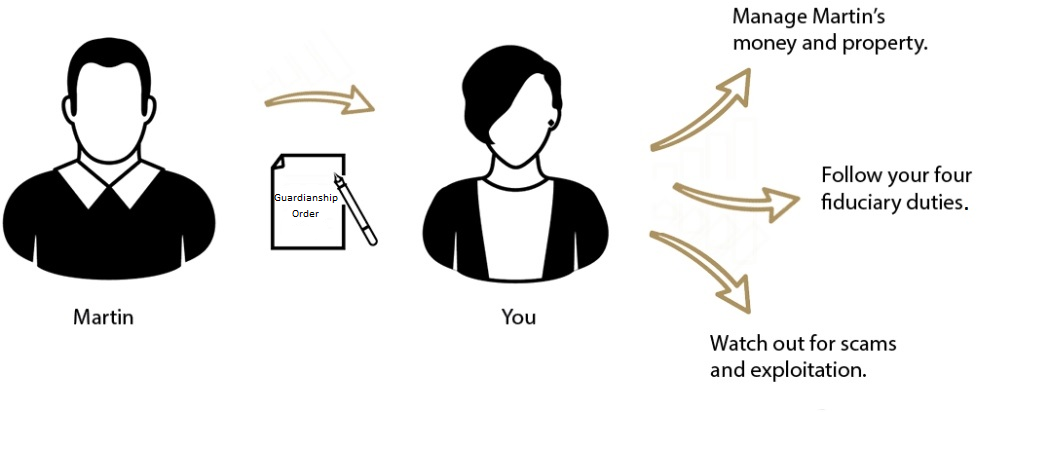Like many people, you may never have been a guardian of someone else’s property before. That’s why we created Managing Someone Else’s Money in Texas: Help for Court-Appointed Guardians of the Estate (this “Guide”). This Guide will help you understand what you can and cannot do in your role as a guardian of the estate. In that role, you are a fiduciary. For this Guide, a fiduciary is anyone named to manage money or property for someone else. In this Guide, you’ll find brief tips to help you avoid problems, as well as resources for finding more information. This Guide is for family and friends already serving as a guardian of the estate for a loved one, not for professionals or organizations. If you want to learn about how to become a guardian of the estate or other alternatives, this Guide is not designed for you. This Guide does not give you legal advice and it is not intended to take the place of any training required by law or instruction provided by the court. If you have questions about your duties, talk to a lawyer, read our other guides, and visit the "Seniors and the Law" webpage at TexasLawHelp.org.
How you might have become a guardian of the estate
Your family member or friend may not be able to make decisions on his own about his money and property. For this Guide, let’s call him Martin. You filed an application with a probate court asking to be appointed as Martin's guardian of the estate. After a hearing, the court issued a guardianship order naming you guardian of the estate for Martin. You now have the duty and power to make decisions on Martin’s behalf about some or all of his money and property as specified in the guardianship order. The court has given you a lot of responsibility as Martin’s guardian of the estate. Under the law, you are now a fiduciary with fiduciary duties.
